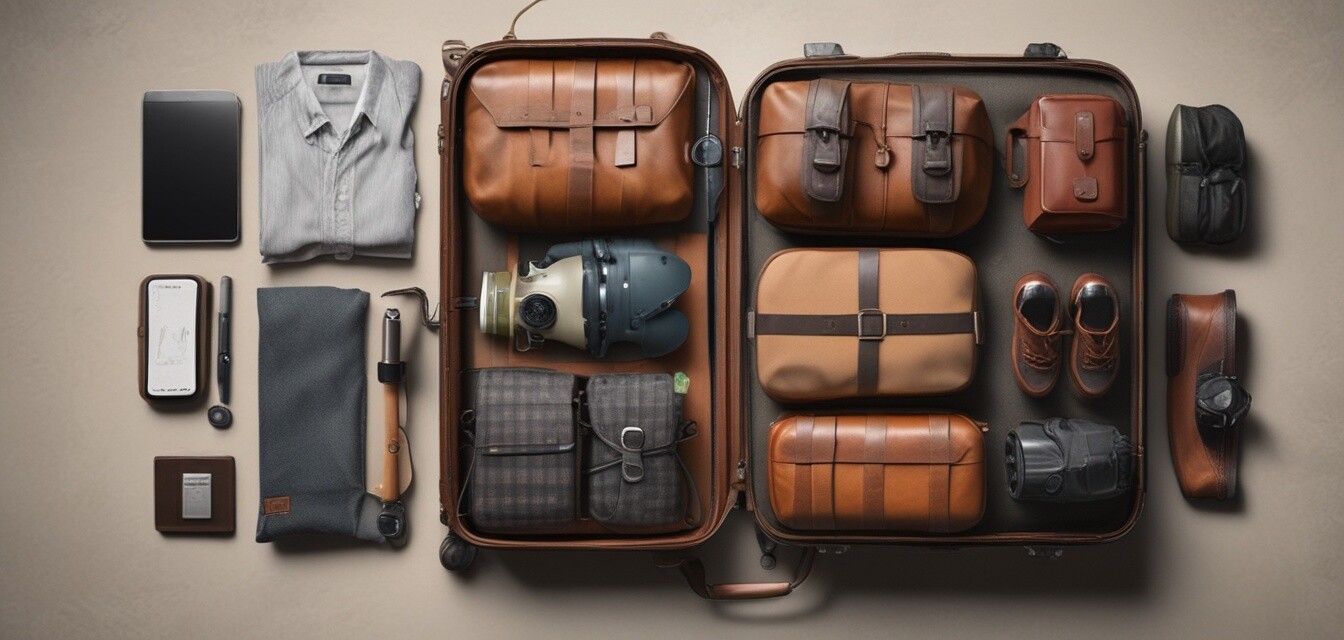
Tips for Traveling with Special Needs
- Choose the right luggage that meets your specific requirements.
- Plan ahead for accessibility at airports and accommodations.
- Utilize packing organizers to keep essentials easily accessible.
- Consider special accessories that enhance convenience during travel.
- Stay informed about travel regulations related to special needs.
Traveling can be a joyful experience, but it may require a little extra planning when accommodating special needs. Whether you have mobility challenges, sensory sensitivities, or other requirements, being well-prepared can make your journey smoother and more enjoyable. In this article, we provide practical travel tips and recommendations for choosing luggage and accessories that cater to special needs.
Selecting the Right Luggage
Having the right luggage can significantly ease your travel experience. Here are some key factors to consider:
- Lightweight Material: Opt for luggage made from lightweight materials to reduce strain when lifting and maneuvering.
- Mobility Features: Look for suitcases with wheels that glide smoothly and a handle that extends easily for comfortable towing.
- Accessibility: Ensure the luggage has easy-to-open compartments for quick access to items you may need during your journey.
- Adhesive Tags: Use tags that clearly indicate any special needs to help airline staff assist you better.
Types of Luggage to Consider
| Type of Luggage | Best Features | Considerations |
|---|---|---|
| Carry-On Luggage | Compact, lightweight, easily stowed in overhead compartments | Limited packing space for longer trips |
| Check-In Suitcases | Spacious, allows for more packing flexibility | Requires maneuvering through airports and baggage claims |
| Rolling Backpacks | Versatile, can be carried or rolled, adaptable to various travel situations | May not have as much space as traditional suitcases |
| Specialty Luggage | Designed specifically for unique needs, with tailored features | Potentially more expensive than standard luggage |
Planning for Accessibility
Accessibility should be a top priority in your travel preparations. Here are ways to ensure a fully accessible travel experience:
- Research Airports: Prior to your trip, contact airports to learn about their accessibility services, including assistance in moving through terminals.
- Notify Airlines: Inform your airline ahead of time regarding any specific assistance or accommodations you require during travel.
- Check Accommodation: When booking hotels, ensure they have accessible rooms tailored to your needs, including specialized bathroom features.
It's important to communicate your needs with service providers to ensure a comfortable travel experience.
Travel Accessories to Support Special Needs
Travel accessories tailored to special needs can enhance your comfort and convenience while traveling. Consider the following options:
- Packing Organizers: Use packing cubes or pouches to keep medicines, tools, or other essentials organized and accessible.
- Comfort Items: Bring travel pillows, blankets, or other items that enhance comfort during transport.
- Sensory-Friendly Gear: If you have sensory sensitivities, consider noise-canceling headphones or soft travel blankets.
Preparing for Different Modes of Transportation
Each form of transport has its unique considerations for special needs travelers. Here are some modes to think about:
| Transportation Mode | Travel Tips |
|---|---|
| Air Travel | Pre-arrange wheelchair assistance and ensure you have all necessary documents for security checks. |
| Train Travel | Check for accessible routes and platforms; arrive early to get assistance when needed. |
| Car Travel | Pack essential items within reach and consider using a navigation app for routes with accessible rest stops. |
Staying Informed on Regulations
Understanding traveling regulations related to special needs can help you navigate potential challenges. Be sure to:
- Research Special Needs Travel Laws: Familiarize yourself with the laws regarding special needs accommodations at your destination.
- Carry Important Documents: Have copies of special needs documentation or prescriptions as required by airlines or hotels.
- Know Your Rights: Be aware of your rights as a traveler with special needs and communicate them if necessary.
Pros
- Promotes comfort and convenience.
- Encourages preparedness and reduces travel anxiety.
- Enhances overall travel experience and enjoyment.
Cons
- May require additional planning and research.
- Potential extra costs for specialty items.
Conclusion
Traveling with special needs requires thoughtful planning, but it is entirely achievable with the right insights and resources. By selecting appropriate luggage, preparing for accessibility challenges, and utilizing helpful accessories, you can create a travel experience that is enjoyable and accommodating to your needs. For more travel tips and advice, check our Travel Tips category.